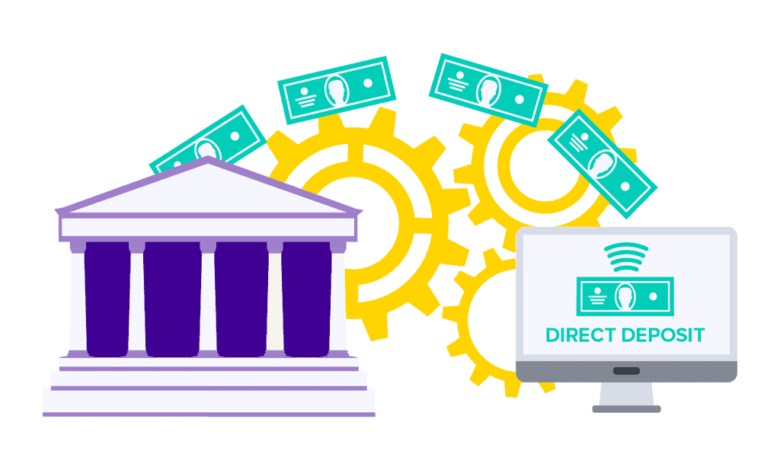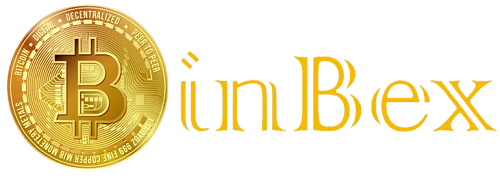Direct Deposit: The Smart Choice for Secure and Convenient Money Transfers

Direct deposit allows employers to electronically transfer wages into an employee’s bank account. It is a safer, more convenient alternative to sending paper checks through the mail. Businesses can also use this method to pay rent, dividends, commissions, and more binbex. Find out more about the advantages and possible disadvantages of direct deposit.
Security
A payee’s bank account receives funds from the payer via an electronic payment method called direct deposit. Doing away with paper checks, which could get misplaced in the mail or be fraudulently cashed by someone else, helps prevent fraud. Additionally, payments sent via direct deposit are encrypted, meaning hackers cannot intercept the information and use it to steal money or identities.
To sign up for a direct deposit, the payee provides an organization with their banking information, including their account number, routing number, bank name, and address. This information is usually provided on a paper form, online, or by supplying a voided check to the company making the deposit.
Direct deposits up to two days early offer the payee flexibility to allocate funds into different accounts based on their preferences and financial goals, such as setting aside money in savings or an emergency fund. It helps individuals practice responsible spending habits and manage their money more effectively. Additionally, it reduces waste caused by stacks of paper pay stubs taking up space in the home or office and the reliance on fossil fuels to power paper recycling plants.
Convenience
Direct deposit is an excellent option for employees. It eliminates the need to go to a bank or check-cashing location during work hours. It can help improve productivity by allowing workers to focus on their jobs without distraction. It provides more consistency for payroll and bill payments as funds are deposited on a predictable schedule. Employees can also set up a savings plan by requesting that a portion of their paycheck be sent directly to a specific account. It can help individuals save for big-ticket purchases and learn the value of budgeting.
Direct deposits are sent electronically, so only you can access the money in your account. It can help you avoid transaction fees when using your checking or savings account and protect against identity theft. It can also help keep your financial information private, even if you change banks or quit working. In most cases, all that’s needed to start direct deposit is a simple form with your employer and bank account information. For your data to be verified, you should submit a voided check or deposit slip.
Reduced Paper Waste
Whether it is for payroll or other types of payments, direct deposit reduces the amount of paper needed. It benefits the environment and can save a company money on printing, envelopes, and fuel for employee transportation to the bank. It is also helpful for employees who no longer have to worry about keeping track of or losing paper pay stubs. It can also save them the time and effort of rushing to their banks on payday or trying to fit it into their lunch break.
To enroll in direct deposit, ask your employer or government agency to provide you with a form that includes their banking information and yours. If you need to change your account, you can contact the payer with the new information, and they will update the system in a few days. Direct deposit works for all types of payments, including salaries, tax refunds, investment redemptions, and government benefits. With these benefits, it is clear why direct deposit is a smart choice for convenience, security, and efficiency.
Faster Transactions
Unlike paper checks that can get lost in the mail, misdelivered, or fraudulently cashed, direct deposit transactions are processed electronically, which means funds are available more quickly. It’s beneficial for employees who rely on their paychecks to make recurring bill payments because they can align these payments to the day their paycheck will be deposited.
Employees provide their routing and checking account numbers to their employer or payer to set up direct deposit. This information is often supplied in a natural deposit form, typically offered during the new hire onboarding process or in an online portal. Some employers ask for a voided check or deposit slip to verify account information.
Employees also have the option to split a single direct deposit payment among different accounts, such as checking and savings. It provides more flexibility to save money, manage spending, and reach financial goals. It can also help to prevent the risk of overdrawing an account and avoid costly overdraft fees. Additionally, the ability to schedule bill payments immediately after paychecks are deposited eliminates the need for employees to visit the bank or ATM on payday.
Easier Accounting
When you use direct deposit, each transaction is recorded electronically. It makes tracking what’s going in and out of your business accounts easier. It’s helpful when it comes time to do your taxes. People commonly associate direct deposit with payroll, but this method can also transfer money from other sources.
For example, dividend payments, investment redemptions, pensions, tax refunds, and travel reimbursements can all be sent via direct deposit. It can be a valuable service for many individuals, from retirees to gig workers. Whether you’re sending a few hundred dollars to a friend or millions of dollars to your employees, an electronic payment system will help streamline the process.
With fewer steps and a smaller margin for error, you’ll spend less time managing the data that’s being transferred and more time growing your business. In addition, automated AP systems are more scalable than manual processes, making them an ideal choice for businesses of all sizes.



